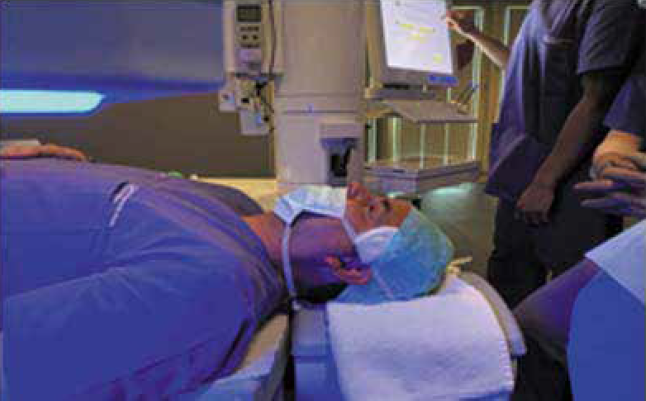Positive outcomes with blended vision for presbyopia correction.
Dermot McGrath reports from the 2022 ESCRS Winter Meeting.
Using laser vision correction to create customised blended vision may offer surgeons a safe and effective treatment option for presbyopic patients in the absence of cataract, according to the results of a study presented at the Cornea Day session.
“We believe that this approach, which we called PresbyEDOF, is an interesting alternative procedure of suitable excimer laser presbyopia correction. Using a method safer than wearing contact lenses, we were able to improve quality of life for every patient,” said Detlev Breyer MD.
Explaining the background to the study, Dr Breyer noted there are currently two laser platforms on the market designed to achieve a depth of focus effect on the cornea: Presbyond® (Carl Zeiss Meditec) and PresbyMAX® (Schwind).
“We have over 10-years’ experience with Presbyond laser surgery inducing positive spherical aberrations to achieve an EDOF effect with the addition of 1.5 D and inducing an anisometropia of -1.5 D,” he said.
Although the PresbyMAX software on the Amaris 1050RS laser routinely offers an anisometropia of -0.89 D and 1.25 D negative spherical aberration, Dr Breyer said this was insufficient to deliver true spectacle independence for his patients, particularly for near vision.
“We therefore increased the anisometropia using PresbyMAX to 1.5 D and an extended depth of focus effect of 1.5 D using negative spherical aberrations,” he said.
For the study, 20 patients answered the National Eye Institute Visual Function Questionnaire concerning everyday experience, subjective optical quality, subjective optical side effects, and quality of life one to three months after surgery.
At three months, more than 85% of patients said they could read a newspaper without visual aids, more than 90% said they didn’t use glasses for various hobbies, and more than 90% said they had no problems when shopping. Most of the patients said they now drove their cars without needing glasses and that their comfort with night driving had also improved significantly.
Summing up, Dr Breyer said the everyday experience, subjective optical quality, subjective optical side effects, and quality of life improved significantly in all patients—all of whom said they would recommend the procedure to a friend.
Furthermore, Dr Breyer said he fully expected the ninemonth and one-year follow-up data to be even better due to neuroadaptation.
“I was so impressed by the results that I underwent the same surgery myself. I am very happy with the outcome, but I definitely noticed a difference in the quality of my vision between three, six, and nine months,” he said.
Dr Breyer also stressed these were the first patients to be treated with these modified parameters on the PresbyMAX platform.
“There is a little bit of a learning curve, so next year we will show new data, which should be even more impressive,” he said.
Detlev Breyer MD is an ophthalmologist and owner, PremiumEyes and Breyer-Kaymak-
Klabe Eye Surgery, Düsseldorf, Germany.
dr.detlev.breyer@gmail.com


